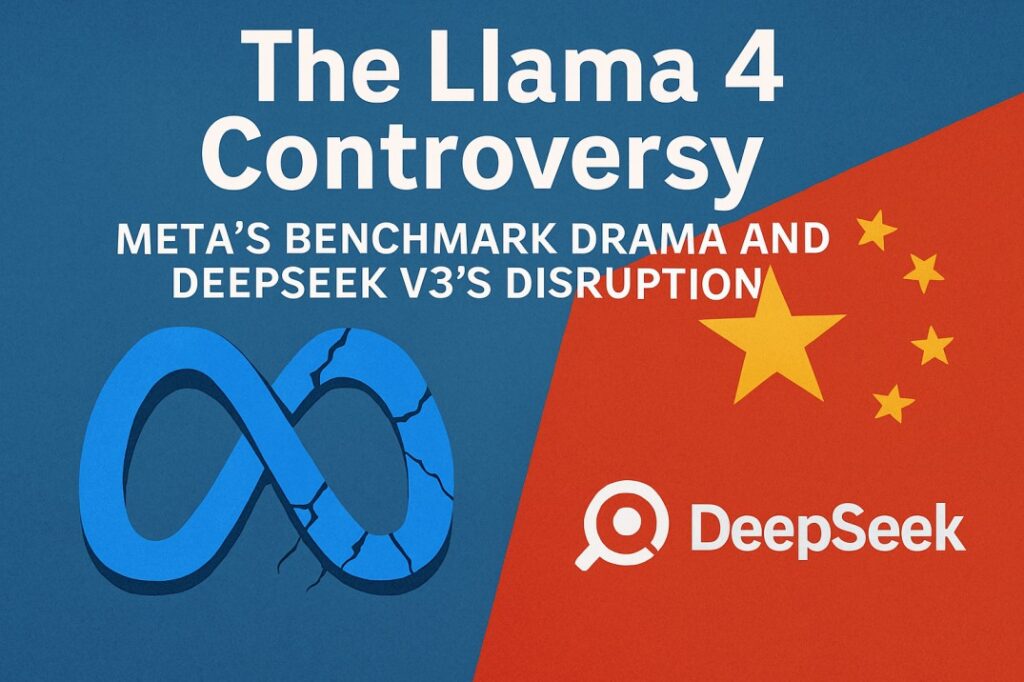The Llama 4 Controversy
The AI industry is no stranger to controversy, and the recent release of Meta’s Llama 4 has added fuel to the fire. Despite high expectations, early benchmarks for the model have not lived up to the hype, raising serious questions about what’s really happening behind the scenes at Meta.
A Mysterious Release Without a Technical Paper
One of the first red flags with Llama 4 was the absence of a technical paper at launch. While it is becoming more common for companies to withhold detailed information to protect competitive advantages, the lack of transparency in this case has raised eyebrows. Without insights into the model’s architecture, training methods, or unique innovations, the AI community is left to speculate — and some are suggesting that Meta may have tampered with benchmarks to artificially boost performance.
Divided Opinions: Fraud or Fair Play?
The release has sharply divided opinions. Some claim Meta faked the benchmarks, while others — including some experts — argue that Llama 4 is a genuinely strong model. However, a viral Reddit post has added to the drama, suggesting internal panic within Meta’s GenAI organization.
According to the anonymous post, panic set in following the release of DeepSeek V3, a Chinese model that reportedly outperformed Llama 4 while being trained on a modest $5.5 million budget. Meta’s management, facing massive internal costs and executive salaries, reportedly became concerned about justifying their expenditures when a relatively unknown company could produce comparable results at a fraction of the cost.
The post also claimed that DeepSeek R1 would pose an even greater threat, hinting at further embarrassment for Meta. Although initially dismissed, these rumors have gained traction amid growing skepticism around Llama 4’s performance.
Benchmarking Controversy: Different Models, Different Results
The situation became even murkier when comparisons between the benchmark version of Llama 4 and the publicly released version revealed significant differences. AI enthusiasts noticed that the version tested in benchmark competitions, dubbed “Llama 4 Maverick Experimental,” produced much stronger results compared to the Llama 4 model released to the public through platforms like OpenRouter.
It appears that Meta may have used an experimental or distilled version of Llama 4 to achieve better benchmark results. This practice, while not necessarily deceptive if disclosed, can mislead the community if the benchmarked model is materially different from what users can access.
Some experts argue that the Maverick version and the released model are simply part of Meta’s experimentation process, suggesting that users should not take benchmark rankings too seriously during this phase. However, the optics of the situation have undoubtedly fueled suspicion.
Final Thoughts: A Bumpy Road for Meta
Despite the controversy, Meta has expressed excitement about bringing Llama 4 to the public. The company emphasized that user feedback will help improve the model over time. However, the rocky release, combined with transparency issues and intense competition from emerging players like DeepSeek, has put Meta’s GenAI division under the microscope.
In the rapidly evolving AI landscape, where innovation and trust are paramount, Meta’s handling of Llama 4’s launch may serve as a case study in how not to manage expectations.
A: The Llama 4 controversy centers around allegations that Meta may have manipulated benchmark results for their new AI model. Leaks suggest the model tested internally at Meta was not the same version released publicly, raising serious concerns about transparency.
A: Unlike previous Llama model releases, Meta chose not to publish a detailed technical paper alongside Llama 4. This unusual decision sparked suspicion in the AI community, with many questioning whether Meta wanted to hide certain performance shortcomings.
A: DeepSeek V3 is an open-source AI model developed by a small Chinese team. Despite limited resources, DeepSeek V3 has achieved benchmark results comparable to or exceeding Llama 4, surprising many and intensifying scrutiny on Meta’s claims.
A: While there is no official confirmation, leaked information suggests that Meta may have benchmarked a private, enhanced version of Llama 4 — not the publicly available one — making the comparisons misleading.
A: The Llama 4 controversy highlights the growing importance of transparency in AI development. It could accelerate demand for truly open and verifiable AI models, while damaging trust in big tech companies that control key AI infrastructure.
A: Preliminary benchmarks suggest that DeepSeek V3 is competitive with Llama 4, especially given its smaller development team and open-source nature. However, direct head-to-head comparisons are ongoing, and more real-world testing is needed.
